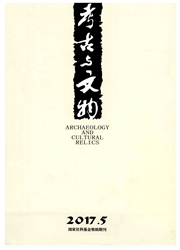
欢迎您!东篱公司
退出

 中文摘要:
中文摘要:
为配合陇海铁路宝兰复线陕西宝鸡段工程,2001年陕西省考古研究院先后两次发掘了宝鸡建河墓地,取得了重要收获。其中秦墓的发掘,是目前为止在陕西境内最西端、甘肃境内最东端的渭河北岸有关秦人踪迹的重要发现,为今后寻找秦人自西向东逐渐迁徙的足迹,乃至对秦文化的研究提供了可靠翔实的第一手科学资料。
 英文摘要:
英文摘要:
This article focused on stable isotope analysis of Qin human remains collected from the Jianhe cemetery at Baoji. By analyzing carbon and nitrogen stable isotopes extracted from those human bones, the dietary structure and substance strategy were thus traced. The results indicate that the ancient Qin people's dietary structure was polyphagous during the Warring State Period, mainly comprising of C4 plants and some meat. The substance strategies of Qin clan during the Pre-Qin period mainly relied on agricultural activities and further supplement with herding.
 同期刊论文项目
同期刊论文项目
 同项目期刊论文
同项目期刊论文
 期刊信息
期刊信息
